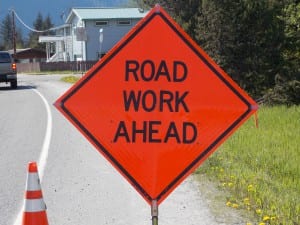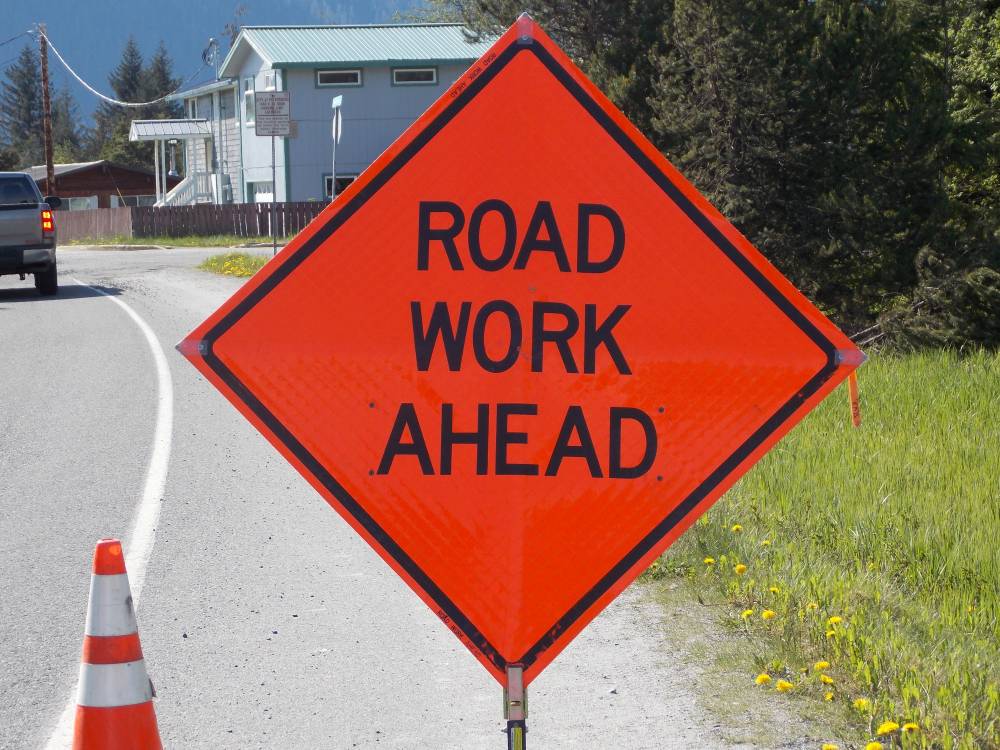Residents on nearly a dozen unpaved streets in Petersburg could have an avenue to get new asphalt under a program that received tentative support from the borough assembly Monday night. The catch is the residents on those streets would have to pay for that paving.
Public works director Karl Hagerman has proposed the use of what’s called a “Local Improvement District” for residents of a neighborhood to collectively pay for the cost of extending a local service, in this case a paved street. Hagerman told the assembly that the company Secon could have its asphalt plant in town into 2017 and it might be the last chance for a while.
Afer the meeting, Hagerman explained he thought it was an opportunity that the borough should offer to residents. “We’ve got an asphalt plant that’s been in Petersburg and it looks like it will be here, could be here into the summer,” he said. “And when it goes away, it probably won’t come back for a long time. And so because the borough, it’s not financially feasible for the borough to fund more paving in this next year, the LID idea is a way for residents who are interested in having a street paved participate. There’s a long process of approvals and information gathering and sharing that go into this. Through that process the borough will find out if folks are interested or not and if they’re not then it’s their decision and at least we can feel good that we’ve made the offer.”

The borough paid to pave a number of other local streets last year while Secon was finishing up work on a major renovation of two state roads Haugen Drive and South Nordic. This proposed program would target streets that are cul de sacs, or mostly used only by home owners, instead of main thru ways in town. The list of possible roads include a number in the Severson subdivision just south of downtown and other neighborhoods near Wrangell Avenue and off Sandy Beach Road.
The program would require residents to return a petition with the signatures of 60 percent of the homeowners along a street. Then the borough would prepare a cost estimate and hold a public hearing before the issue went to a vote of the impacted residents. If 60 percent approve, then all the home owners in that neighborhood would have to pay the cost of paving. Hagerman provided the assembly with a rough estimate of 2200-3800 dollars for a home with 80 feet of street in front. Payment could be spread out over years or all up front.
Assembly member Kurt Wohlhueter thought the program could pit neighbor against neighbor. “One neighbor on one side doesn’t want it, one neighbor on the other side wants it,” he explained, “and now all of the sudden you’ve got angry neighbors. And we’re kinda forcing them to do this because they’ve decided that half a dozen of ‘em want to do it and the other four don’t wanna do it because they can’t afford to do it. I just really think it’s a bad policy that we’re forcing people to do stuff against their will, when most all of us, when most of us got it for free. You know I have to bring that up. I got a nice paved road and a nice sidewalk in front of my house.”
Mayor Mark Jensen had similar concerns but others on the assembly supported the concept. Nancy Strand thought it was a great idea. “I think that people are gonna have to pay for it even if the borough did it and those 60 percent who might not want it, are they gonna want it next year when it’s on the borough’s bill and we have to do a bond issue?” she wondered. “I think that they’re not gonna save that much money.”
The mayor and assembly ultimately voted 6-0 to go forward with the program in concept. That means the issue will come back in the form of a resolution at the assembly’s next meeting and they can take another vote on whether to proceed.
One note, the Local Improvement District has long been an option in both city and borough code for residents seeking to add a utility or service, but it’s not one that’s been used very often. Hagerman could remember it being used once before by residents seeking chip sealing on one local road. After the assembly decides on a resolution about the program, public works will send out information and petitions to residents of the neighborhoods. If there’s no interest in pay for paving then the program will end.










